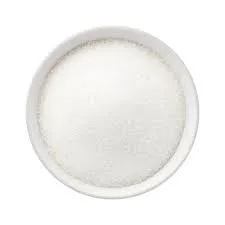 Email: sale@hebeidisha.com
Email: sale@hebeidisha.com
 Tel: +86 13315186550
Tel: +86 13315186550
- Afrikaans
- Albanian
- Amharic
- Arabic
- Armenian
- Azerbaijani
- Basque
- Belarusian
- Bengali
- Bosnian
- Bulgarian
- Catalan
- Cebuano
- China
- China (Taiwan)
- Corsican
- Croatian
- Czech
- Danish
- Dutch
- English
- Esperanto
- Estonian
- Finnish
- French
- Frisian
- Galician
- Georgian
- German
- Greek
- Gujarati
- Haitian Creole
- hausa
- hawaiian
- Hebrew
- Hindi
- Miao
- Hungarian
- Icelandic
- igbo
- Indonesian
- irish
- Italian
- Japanese
- Javanese
- Kannada
- kazakh
- Khmer
- Rwandese
- Korean
- Kurdish
- Kyrgyz
- Lao
- Latin
- Latvian
- Lithuanian
- Luxembourgish
- Macedonian
- Malgashi
- Malay
- Malayalam
- Maltese
- Maori
- Marathi
- Mongolian
- Myanmar
- Nepali
- Norwegian
- Norwegian
- Occitan
- Pashto
- Persian
- Polish
- Portuguese
- Punjabi
- Romanian
- Russian
- Samoan
- Scottish Gaelic
- Serbian
- Sesotho
- Shona
- Sindhi
- Sinhala
- Slovak
- Slovenian
- Somali
- Spanish
- Sundanese
- Swahili
- Swedish
- Tagalog
- Tajik
- Tamil
- Tatar
- Telugu
- Thai
- Turkish
- Turkmen
- Ukrainian
- Urdu
- Uighur
- Uzbek
- Vietnamese
- Welsh
- Bantu
- Yiddish
- Yoruba
- Zulu
Jul . 26, 2024 13:38 Back to list
Exploring the Benefits and Uses of Birch Sugar in Natural Sweetening Solutions
Understanding Birch Sugar A Natural Sweetener with Benefits
Birch sugar, also known as xylitol, is a sugar alcohol derived from the bark of birch trees and other hardwoods. With a sweet taste comparable to sucrose, it has gained popularity as a natural sweetener, particularly among those seeking healthier alternatives to traditional sugar. In recent years, birch sugar has become a favorite among health enthusiasts, diabetics, and anyone looking to reduce their sugar intake.
One of the most compelling features of birch sugar is its low glycemic index (GI) of around 7, compared to sucrose, which has a GI of approximately 60. This means that birch sugar has a minimal impact on blood sugar levels, making it an ideal sweetener for individuals with diabetes or those wanting to maintain stable energy levels. By substituting birch sugar for regular sugar, people can enjoy sweet flavors without the associated spikes and crashes in blood glucose, facilitating better overall health and well-being.
Moreover, birch sugar boasts several dental health benefits. Unlike traditional sugars, which feed harmful bacteria in the mouth leading to tooth decay, xylitol has been found to inhibit the growth of such bacteria. It promotes mineralization of the teeth and helps to maintain a balanced oral environment. This makes birch sugar a favored ingredient in many dental products, including toothpaste and chewing gum. Regular consumption of xylitol can aid in reducing the risk of cavities and improve overall oral hygiene.
In addition to its dental and glycemic benefits, birch sugar is also known for its compatibility with low-carb and ketogenic diets. As many individuals seek ways to enjoy sweets without derailing their dietary goals, birch sugar serves as a versatile ingredient for a variety of recipes, from baked goods to beverages. It can be used in a 11 ratio to replace sugar in most recipes, making it easy to incorporate into daily meals.
birch sugar

Another significant advantage of birch sugar is its lower calorie count compared to sugar. While sugar contains about 4 calories per gram, birch sugar only contributes approximately 2.4 calories per gram. This reduced caloric content makes it an attractive option for those looking to manage their weight without sacrificing sweetness in their diets.
However, it is important to note that, like many sugar alcohols, xylitol can cause gastrointestinal discomfort when consumed in large quantities. Individuals may experience gas, bloating, or diarrhea if they exceed the recommended intake. It is always wise to introduce birch sugar gradually into the diet to gauge tolerance.
For pet owners, it is crucial to be vigilant about their furry friends, as xylitol is toxic to dogs. Even small amounts can lead to rapid insulin release, causing hypoglycemia and other severe health issues. Awareness and care are essential to ensure the safety of pets when using birch sugar in the household.
In conclusion, birch sugar is a natural, low-calorie sweetener that offers various health benefits, including a low glycemic index and dental health support. Its versatility in the kitchen makes it a practical substitute for regular sugar, allowing people to satisfy their sweet cravings without unwanted side effects. However, as with all food products, moderation is key to maximizing its benefits while minimizing any potential drawbacks. As more people turn to healthier lifestyles, birch sugar stands out as an excellent choice for sweetness without compromise.
Latest news
-
Xanthan Gum Replacement and Powder Insights
NewsJun.06,2025
-
Exploring SLES 70 in Depth
NewsJun.06,2025
-
E1520 Propylene Glycol Uses and Consumption Patterns
NewsJun.06,2025
-
Diethanolamine Multifaceted Uses and Role in Shampoo Formulations
NewsJun.06,2025
-
Caprolactam to Nylon Chemistry and Industry Insights
NewsJun.06,2025
-
Adipic Acid Molecular Weight Significance and Supplier Impact
NewsJun.06,2025